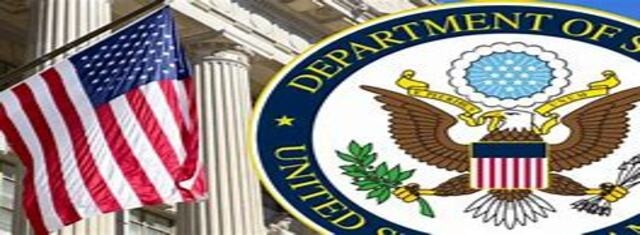News
Reward Offer for Information on Foreign Interference in U.S. Elections
Rewards for Justice

(Source: File photo)
USPA NEWS -
The U.S. Department of State’s Rewards for Justice (RFJ) program, which is administered by the Diplomatic Security Service, is offering a reward of up to $10 million for information on foreign interference in U.S. elections.
The reward offer seeks information leading to the identification or location of any foreign person, including a foreign entity, who knowingly engaged or is engaging in foreign election interference, as well as information leading to the prevention, frustration, or favorable resolution of an act of foreign election interference.
Foreign election interference includes certain conduct by a foreign person that violates federal criminal, voting rights, or campaign finance law, or that is performed by any person acting as an agent of or on behalf of, or in coordination with, a foreign government or criminal enterprise. This conduct includes covert, fraudulent, deceptive, or unlawful acts or attempted acts, or knowing use of information acquired by theft, undertaken with the specific intent to influence voters, undermine public confidence in election processes or institutions, or influence, undermine confidence in, or alter the result or reported result of a general or primary federal, states, or local election or caucus. Such conduct could include vote tampering and database intrusions; certain influence, disinformation, and bot farm campaigns; or malicious cyber activities.
This reward offer reflects additional authorities to provide rewards for information on foreign interference in domestic elections provided by the William M. “Mac” Thornberry National Defense Authorization Act for Fiscal Year 2021.
This reward offer reflects additional authorities to provide rewards for information on foreign interference in domestic elections provided by the William M. “Mac” Thornberry National Defense Authorization Act for Fiscal Year 2021.
More information about this reward offer is located on the Rewards for Justice website at www.rewardsforjustice.net . We encourage anyone with information on foreign interference in U.S. elections to contact the Rewards for Justice office via its Tor-based tips-reporting channel at: he5dybnt7sr6cm32xt77pazmtm65flqy6irivtflruqfc5ep7eiodiad.onion (Tor browser required).
The Rewards for Justice Program is an effective law enforcement tool and is administered by the U.S. Department of State’s Diplomatic Security Service. Since its inception in 1984, the program has paid in excess of $250 million to more than 125 people across the globe who provided information that helped prevent terrorism, bring terrorist leaders to justice, and resolve threats to U.S. national security. Follow us on Twitter at https://twitter.com/RFJ_USA .
The Rewards for Justice Program is an effective law enforcement tool and is administered by the U.S. Department of State’s Diplomatic Security Service. Since its inception in 1984, the program has paid in excess of $250 million to more than 125 people across the globe who provided information that helped prevent terrorism, bring terrorist leaders to justice, and resolve threats to U.S. national security. Follow us on Twitter at https://twitter.com/RFJ_USA .
Thank you for reading my article. These are merely my thoughts and insights based on the facts. I use only verified sources. No fake news here. I write about a variety of subjects, mainly things I want to research and know more about. You can check out my website – Small Village Life at smallvillagelife.com, where I share useful articles and news.
Wendy writes for the United States Press Agency and is a former columnist with the Fulton County Expositor, Wauseon, Ohio.
Source: US Department of State media note June 30, 2022
Wendy writes for the United States Press Agency and is a former columnist with the Fulton County Expositor, Wauseon, Ohio.
Source: US Department of State media note June 30, 2022
more information: https://smallvillagelife.com/pg-2
Liability for this article lies with the author, who also holds the copyright. Editorial content from USPA may be quoted on other websites as long as the quote comprises no more than 5% of the entire text, is marked as such and the source is named (via hyperlink).





